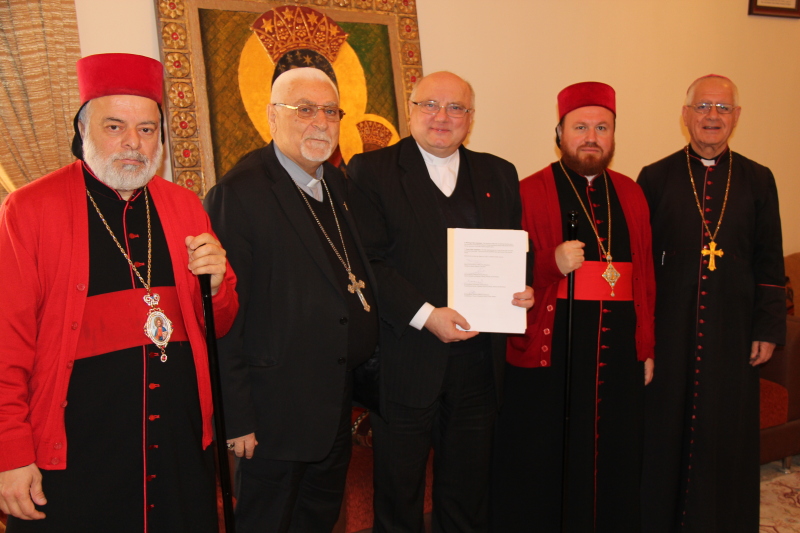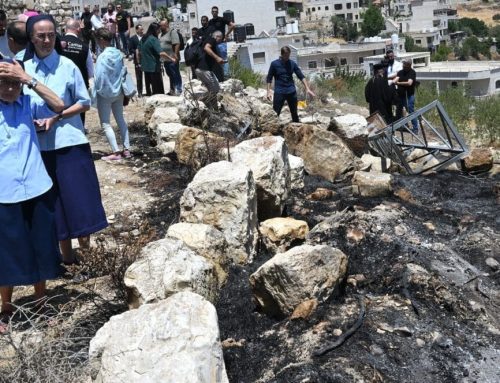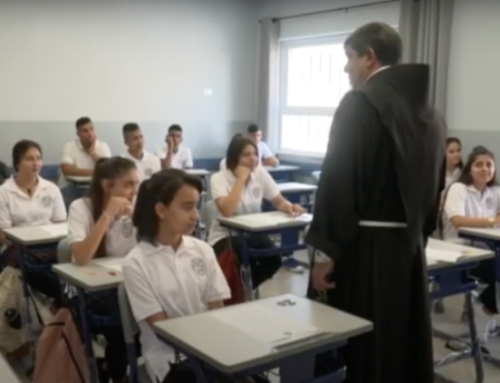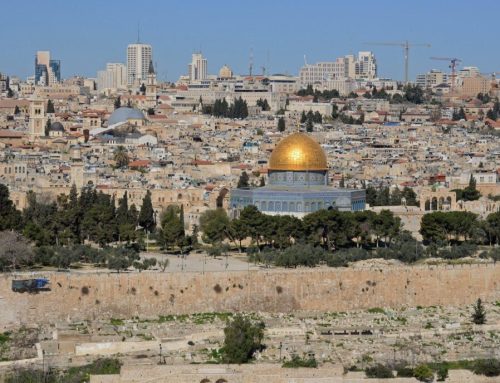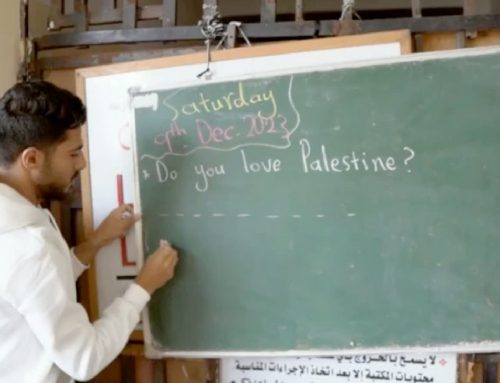Thousands upon thousands of Iraqi Christians forced from their towns and villages by Daesh (ISIS) are an important step closer to returning home after Church leaders formed a taskforce charged with developing a massive rebuilding programme.
Bishops representing three of Iraq’s historic Churches – Syriac Catholic, Syriac Orthodox and Chaldean Catholic – have formed the Nineveh Reconstruction Committee (NRC).
The committee came into being at a ceremony at the offices of the Chaldean Archdiocese of Erbil, the capital of Kurdish northern Iraq – the centre of a displaced community of 100,000 Christians who in August 2014 were driven from their Nineveh villages when Daesh invaded.
The representatives of the churches (pictured above) were Syriac Catholic Archbishop Yohanna Petros Mouche of Mosul, Syriac Orthodox Metropolitan Nicodemus Daoud Matti Sharaf of Mosul, Kirkuk and Kurdistan, and Syriac Orthodox Archbishop Timothaeus Mosa Alshamany, Prior of the Monastery of Saint Matthew, and Chaldean Catholic Bishop Mikha Pola Maqdassi of Alqosh.
The NRC will oversee the planning and rebuilding Christian settlements on the Nineveh Plains, northern Iraq.
A survey by Aid to the Church in Need, the Catholic charity for persecuted and other suffering Christians, calculated that around 12,000 homes need to be rebuilt after they were burnt, destroyed or otherwise damaged by Daesh. According to the charity’s research, the work of reconstruction will cost more than £160 million (US$200 million).
The NRC will allocate funds to each denomination according to the number of damaged houses belonging to members of their Church, as determined by the survey.
After the ceremony on Monday (27th March), Syriac Orthodox Archbishop Alshamany underlined the initiative’s historic importance – both in terms of ecumenical cooperation and for offering thousands of displaced Christians the opportunity to return home. He said: “Today we are truly a united Church – Syriac Orthodox, Chaldean and Syriac Catholic – united in the work of rebuilding these houses on the Nineveh Plains and in restoring hope to the hearts of the inhabitants of these villages and inviting those who have left them to return.”
Syriac Catholic Archbishop Mouche also emphasised the ecumenical dimension of the NRC. He said: “I would like to invite the Christians of the Nineveh Plains to return to their homes and resume living in their villages, in order to bear witness to Christianity… Today we join together to demonstrate that we are united in our wish to accelerate this operation as rapidly as possible, and that it must start as soon as possible.”
Father Andrzej Halemba, who oversees ACN’s work in the Middle East, said the charity will closely follow the committee’s work in its initial phases – and throughout will seek potential sources of funding, particularly from major international benefactors. Stressing the importance of the plan, Father Halemba said: “We have done it to ensure that the Christians can remain in Iraq. We are working for God.”
Archbishop Alshamany highlighted the charity’s role in developing the initiative. He said: “We would like to thank ACN, which has helped us so much in the past, by providing help and food. Now this charity is playing a crucial role in the rebuilding of our houses.”
Syriac Orthodox Metropolitan Sharaf made an appeal for aid to the international community. He said: “We are the roots of Christianity. We must remain in our country. We must remain as witnesses to Jesus Christ in this country, in Iraq and especially in the Plains of Nineveh. This task of rebuilding all the houses in those villages where ISIS has destroyed everything is truly an enormous challenge. Thank you in advance to all those who will help us.”
Source: ACN

